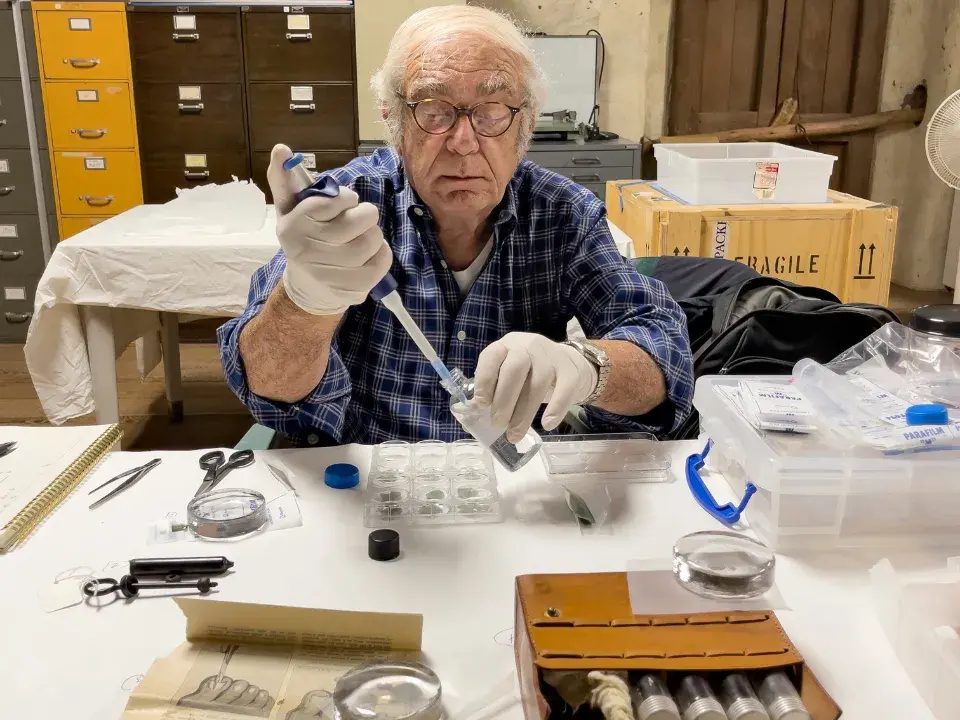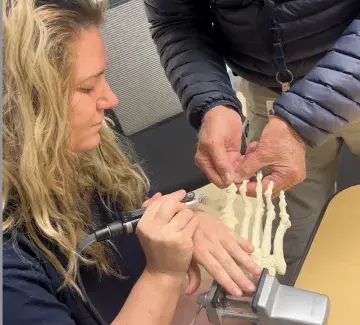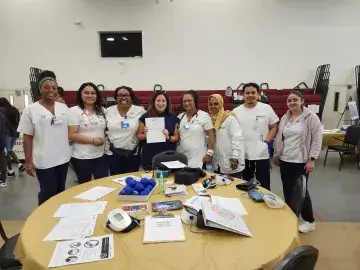Humanizing Pharmacology's History

Smithsonian magazine recognizes the work of SMU professor
"If we don't know where we've been, we aren't going to know where we are going," muses Richard Rocco, PhD, a pharmacology professor at Samuel Merritt University. at Samuel Merritt University. In his nearly 20 years of teaching at SMU, Rocco has made a habit of transcending the nuts and bolts of science in his classrooms. He has also published a number of papers on the history of medicine and pharmacology, including a recent groundbreaking one concerning the alleged drug use of idolized American author Jack London.
While visiting the Jack London State Historic Park in Glen Ellen, California, he noticed a drug kit belonging to the author and was instantly intrigued. Biographers have referred to London as a user of heroin, opium, morphine, and the various uppers and downers that were available at the time. Rocco wondered, “Could we examine some of his objects, which we know he owned and handled and have been in storage for 50 years, and test them for the presence of the drugs that many people claimed he was abusing?”
Rocco used ethylene-vinyl acetate (EVA) film technology — its first use on American artifacts — to lift and analyze residues from London’s belongings. Able to detect drugs left by sweat or saliva on objects touched even hundreds of years ago, EVA film, a technology designed by “protein detective” Gleb Zilberstein and pioneered by Italian chemist Pier Giorgio Righetti, is lauded for being a nondestructive means to recover evidence from historical artifacts.
As noted in the November/December 2022 issue of Smithsonian magazine, “Working with Richard Rocco, a pharmacologist at Samuel Merritt University in California, Zilberstein and Righetti sampled several of London’s personal effects, including glass drug vials, a leather medicine case, and a pamphlet on rattlesnake bites. They found traces of opium and heroin on the vials, but only in combinations with other drugs that suggested they were part of over-the-counter remedies popular at the time for treating coughs and colds.”
Although these results were perhaps not as scandalous as some had hoped, Rocco was pleased with the findings. He says the study is a terrific example of the many unique and cutting-edge research projects happening at SMU. “Yes, we are a healthcare institution, and we provide medical services for the community on many different levels, but my scholarship in the history of medicine is another aspect of the diversity of projects going on at Samuel Merritt University.”


